Managing insulin naturally is essential for people aiming to maintain healthy blood sugar levels and prevent conditions like type 2 diabetes. Foods significantly impact insulin sensitivity and glucose management. This blog post explores 12 foods that can negatively affect insulin sensitivity and 12 foods that help improve it. By understanding these foods, individuals can make informed dietary choices to better manage their insulin levels naturally.
White Bread

White bread’s fluffy texture makes it a breakfast favorite, but its impact on insulin is less desirable. Made from refined flour, it lacks fiber, causing a rapid spike in blood sugar levels.
This quick absorption means insulin must work overtime, potentially leading to insulin resistance. For those managing insulin levels, whole grain alternatives might be a better choice.
Historically, white bread was a symbol of status and refinement, prized for its soft texture. However, its nutritional drawbacks make it a less favorable option for those monitoring their blood sugar.
Sugary Beverages

Sugary beverages, with their enticing fizziness, often quench thirst but wreak havoc on insulin levels. High in sugar and devoid of fiber, they cause rapid blood sugar spikes.
These drinks require swift insulin responses, potentially leading to insulin resistance over time. Opting for water or unsweetened teas may support better insulin management.
Despite their popularity, these beverages offer little nutritional value. Their widespread consumption contributes to rising health concerns globally, particularly regarding diabetes and metabolic disorders.
French Fries
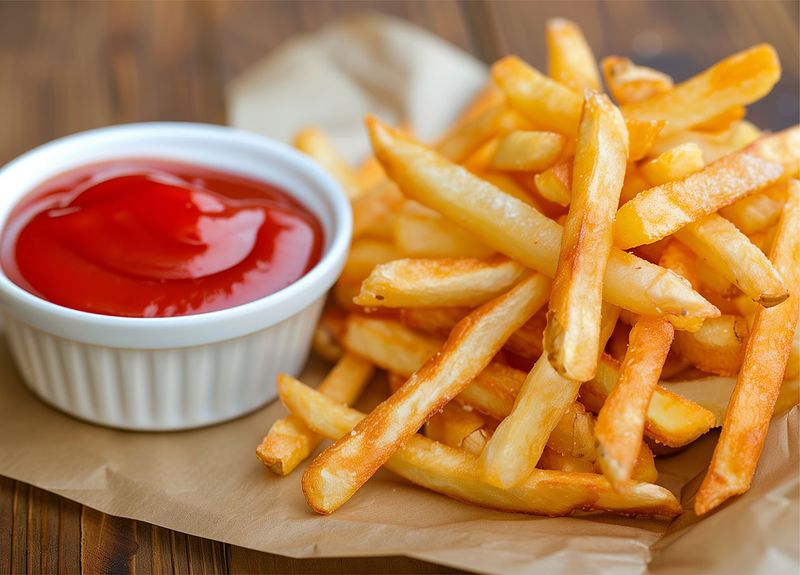
French fries, while crispy and beloved, are high in simple carbohydrates and fats. This combination leads to quick insulin spikes, making them a poor choice for those monitoring blood sugar.
Their popularity as a side dish doesn’t negate their impact on insulin sensitivity. Opting for roasted or baked alternatives can be more beneficial.
Originating from Belgium, French fries became a global sensation, yet their nutritional profile remains a concern for health-conscious eaters. Their addictive taste often overshadows their impact on insulin.
White Rice

White rice, a staple in many cultures, is loved for its versatility. However, it lacks fiber, which can lead to quick sugar absorption and subsequent insulin spikes.
For those managing insulin, brown rice or quinoa might offer better nutritional value. These alternatives provide more fiber and nutrients.
Traditionally, white rice has been a symbol of abundance, yet its impact on modern health prompts reconsideration. While it pairs well with various dishes, its effect on insulin requires mindful consumption.
Candy

Candy, with its vibrant colors and sweet allure, offers little more than a sugar rush. High in refined sugars, they cause immediate blood glucose spikes, straining insulin function.
Regular candy consumption can impair insulin sensitivity, suggesting moderation is key. Opting for naturally sweetened snacks is a healthier alternative.
Despite their fun appearance, candies contribute to rising health issues like obesity and diabetes. Their occasional indulgence is best paired with a balanced diet to minimize insulin-related problems.
Processed Meats

Processed meats, though flavorful, often contain preservatives and added sugars that can influence insulin sensitivity. These additives can lead to inflammation, impacting insulin function.
Choosing fresh, lean meats may promote better insulin management. Processed meats, while convenient, might not align with health goals.
Historically valued for their long shelf life, processed meats are ubiquitous in modern diets. However, their health implications warrant careful consideration, especially for those monitoring insulin responses.
Instant Noodles

Instant noodles, the quick meal solution for many, often come with high sodium and refined carbs. These elements can lead to insulin spikes and reduced sensitivity.
Opting for whole grain or vegetable-based noodles can provide more nutrients and better align with insulin management goals.
Despite their convenience, instant noodles’ nutritional pitfalls make them a less favorable regular choice. Their popularity as a fast food option doesn’t mitigate their potential impact on long-term health.
Pastries and Cakes

Pastries and cakes, often decadent treats, are laden with sugars and refined flours. These ingredients can cause insulin spikes, making them less ideal for blood sugar control.
Their delicious flavors can mask the unhealthy impact on insulin sensitivity, making moderation essential. Choosing healthier dessert alternatives can be a wise decision.
Historically, baked goods were reserved for special occasions, but their availability today makes them routine indulgences, often leading to health challenges.
Ice Cream

Ice cream, the quintessential treat, is rich in sugars and fats. These ingredients can lead to rapid insulin responses, affecting blood sugar control.
While delicious, frequent consumption can hinder insulin sensitivity. Opting for low-sugar or non-dairy alternatives may support healthier insulin management.
Historically a luxury, ice cream has become a common indulgence, yet its impact on insulin prompts careful moderation. Its creamy texture and sweet taste often overshadow its potential health effects.
Energy Drinks

Energy drinks promise a quick boost but come with high sugar levels. These drinks can cause significant blood sugar spikes, challenging insulin regulation.
For sustained energy without the insulin effects, water or herbal teas might be better choices. Energy drinks’ appeal often lies in their immediate impact, not their long-term health benefits.
Their market growth reflects changing lifestyle demands, yet their contribution to metabolic disorders can’t be ignored. Moderating consumption is advisable for those focusing on insulin management.
Granola Bars
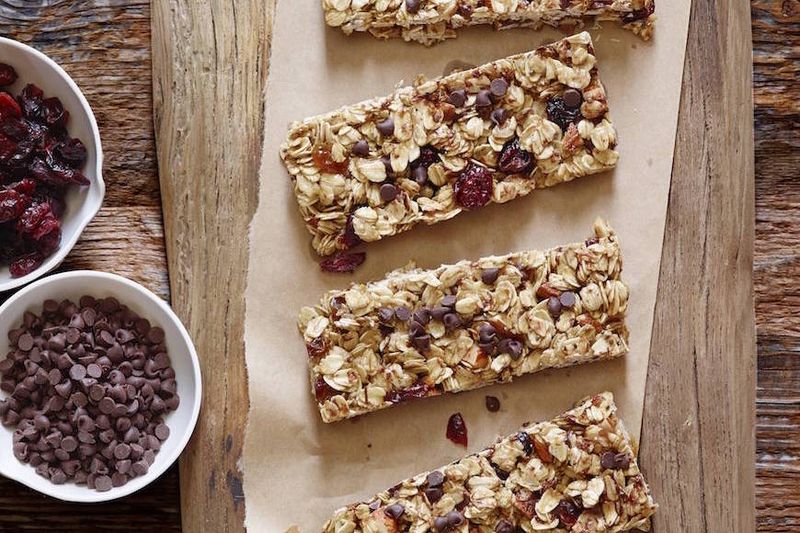
Granola bars, marketed as healthy, can be high in sugars and refined grains. These components might lead to insulin spikes despite their nutritious reputation.
Choosing bars with whole grains and minimal sugars is essential for better insulin management. Granola bars’ convenience often conceals their sugar content, requiring label scrutiny.
Their rise in popularity stems from the health-conscious movement, yet not all are created equal. Finding the right balance can support insulin sensitivity without sacrificing taste.
Fried Chicken

Fried chicken, beloved for its crispy texture, often contains unhealthy fats and simple carbohydrates. These factors can lead to insulin spikes, making it less suitable for those managing blood sugar.
Opting for baked or grilled options may offer a healthier alternative while maintaining flavor. Fried chicken’s widespread appeal doesn’t negate its potential impact on insulin sensitivity.
Emerging from Southern U.S. traditions, fried chicken’s place in modern diets comes with nutritional concerns. Moderation becomes key when balancing taste with health priorities.
Leafy Greens

Leafy greens, such as spinach and kale, are celebrated for their nutrient density. These vegetables provide fiber and antioxidants, promoting better insulin sensitivity and glucose control.
Incorporating them into daily meals can aid in managing blood sugar levels naturally. Their low-calorie content makes them an ideal choice for those focused on insulin regulation.
Throughout history, leafy greens have been a staple in various cultures, noted for their health benefits. Their versatility in dishes supports both flavor and nourishment goals.
Nuts and Seeds
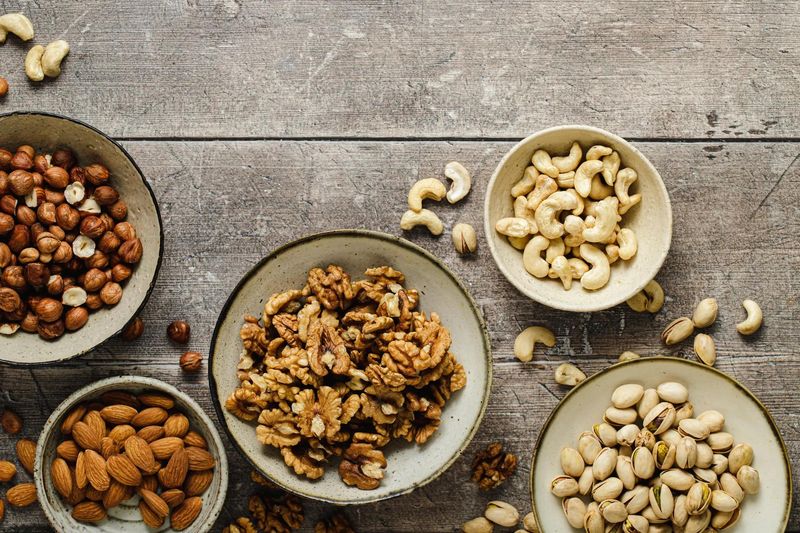
Nuts and seeds, with their rich textures, offer healthy fats and proteins that support insulin function. Their low carbohydrate content helps maintain steady blood sugar levels.
Including them as snacks or meal additions can enhance insulin sensitivity. Their crunchy nature provides satisfaction without the insulin spikes associated with other snacks.
Historically, nuts and seeds were prized for their sustenance and longevity. Their role in modern diets highlights their continued appeal as a wholesome choice for insulin management.
Whole Grains
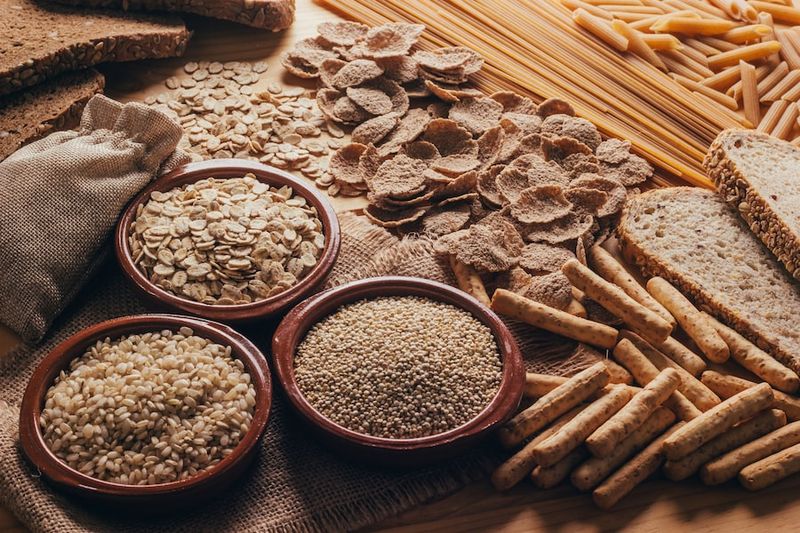
Whole grains, unlike their refined counterparts, retain essential nutrients and fibers. These components help stabilize blood sugar and improve insulin sensitivity.
Incorporating whole grains into meals can support long-term insulin management and offer sustained energy. The hearty texture and nutritional benefits make them a staple in health-focused diets.
Whole grains have been a dietary foundation for centuries, valued for their health properties. Their resurgence in modern nutrition reflects a return to natural, wholesome eating habits.
Berries

Berries, with their vibrant colors, are not only delicious but also beneficial for insulin management. Their natural sugars come with fibers that slow glucose absorption.
Including berries in the diet can enhance insulin sensitivity and provide crucial antioxidants. Their sweet-tart flavor complements various meals without adding excessive sugar.
Throughout history, berries have been cherished for their medicinal properties as well as their taste. Their role in a balanced diet underscores their contribution to overall health and insulin control.
Avocados

Avocados, with their creamy texture, are rich in healthy fats and fibers that support insulin sensitivity. These nutrients help maintain steady blood glucose levels.
Adding avocados to meals can provide a satisfying, nutritious boost without spiking insulin. Their versatility ranges from salads to smoothies, enhancing various dishes.
Originating in Central America, avocados have long been a dietary staple. Their modern popularity reflects an understanding of their beneficial impact on health, particularly in insulin regulation.
Beans and Lentils

Beans and lentils, humble yet nutritious, offer fibers and proteins that aid insulin function. Their low glycemic index helps stabilize blood sugar levels effectively.
Incorporating them into meals can enhance insulin sensitivity and provide sustained energy. Their hearty nature makes them a filling addition to various recipes.
Historically, these legumes have been a cornerstone of diets worldwide, celebrated for their nutritional value. Their ongoing popularity speaks to their great role in managing insulin levels naturally.
Fatty Fish

Fatty fish, like salmon, are excellent sources of omega-3 fatty acids. These nutrients improve insulin sensitivity and reduce inflammation, supporting overall metabolic health.
Including fatty fish in the diet can promote better blood sugar control and heart health. Their rich, savory flavor makes them a culinary delight.
For centuries, fish have been a dietary staple in coastal communities, valued for their health benefits. Their modern acclaim highlights their continued importance in balanced eating and insulin management.
Chia Seeds
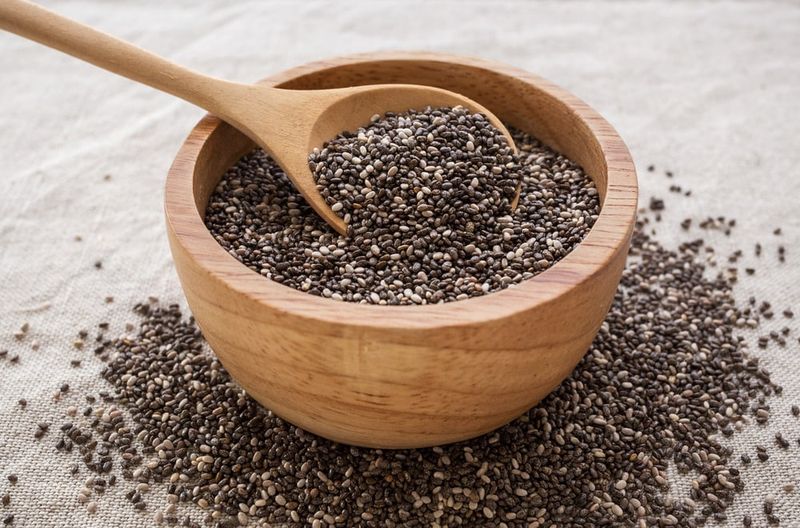
Chia seeds, though tiny, offer a powerhouse of nutrients beneficial for insulin management. Rich in fiber and omega-3s, they support stable blood sugar levels.
Adding chia to meals and smoothies can enhance nutritional profiles without causing insulin spikes. Their gelatinous nature when soaked provides a unique texture to dishes.
Once a staple in ancient Aztec diets, chia seeds have regained popularity in modern health circles. Their benefits for insulin sensitivity contribute to their status as a superfood.
Sweet Potatoes
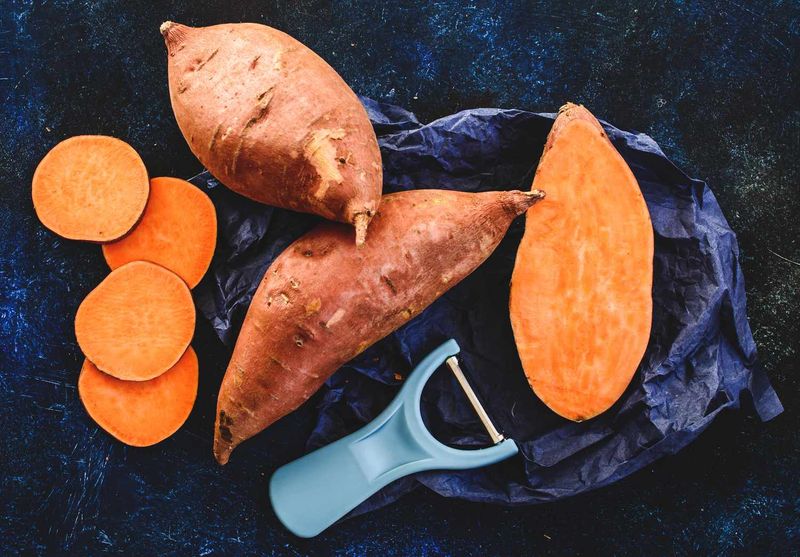
Sweet potatoes, with their natural sweetness, offer fibers and antioxidants that aid insulin function. Their complex carbohydrates provide steady energy without causing major insulin spikes.
Including sweet potatoes in meals can enhance insulin sensitivity and add nutritional value. Their vibrant color and sweet taste make them a versatile ingredient.
Historically, sweet potatoes have been a dietary staple in various cultures, celebrated for their sustenance and flavor. Their role in modern diets underscores their beneficial impact on health and insulin management.
Olive Oil

Olive oil, with its golden hue, is rich in healthy monounsaturated fats that improve insulin sensitivity. These fats support heart health and stable blood sugar levels.
Incorporating olive oil into cooking can enhance flavor while promoting better insulin regulation. Its smooth texture and robust flavor complement a wide array of dishes.
Originating from Mediterranean regions, olive oil has been a dietary staple for centuries. Its modern acclaim as a healthful fat highlights its valuable role in balanced nutrition and insulin management.
Cinnamon

Cinnamon, with its warm, aromatic flavor, offers compounds that boost insulin sensitivity. These compounds help regulate blood sugar levels naturally.
Sprinkling cinnamon on foods and beverages can enhance their taste while supporting insulin function. Its sweet-spicy profile adds a comforting touch to various recipes.
Historically, cinnamon has been prized for its medicinal properties and flavor. Its continued use in modern diets reflects its role in supporting metabolic health and effective insulin management.
Leave a comment